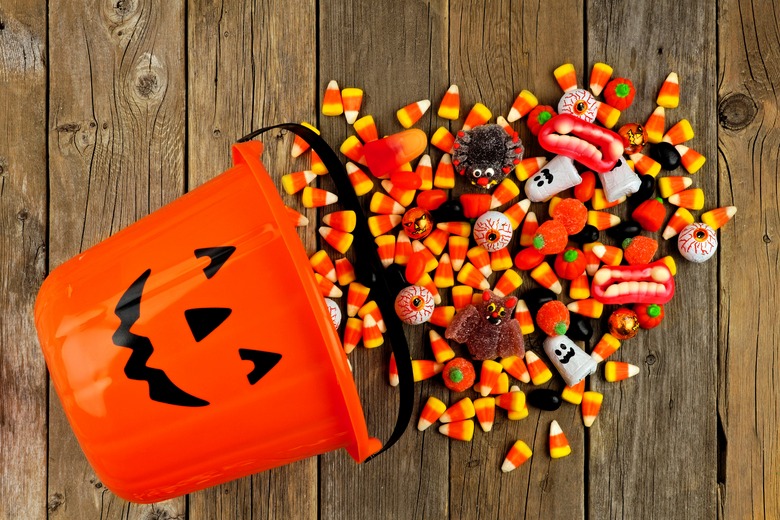Your Body On: Halloween Candy
Happy Halloween! Whether you're staying in or going out this Halloween, chances are you'll be eating just a little too much candy.
And honestly, who could blame you? "Fun size" candy just begs you to grab a handful, and miniature treats are just too hard to turn down – after all, it's just a bite or two.
Go a little too hard on the Halloween candy, though, and you're likely to suffer some consequences, like headaches, that can get in the way of your spooky fun. Here's what's happening in your body after you've overdone it on the candy corn – and what you can do about it.
First, Let's Talk Sugar and Digestion
Exactly what nutrients you'll find in your Halloween candy depends on what you eat – chocolate, for instance, is loaded with fat, while those black and orange gummy worms are fat-free. But no matter what candy you reach for, you'll be getting plenty of sugar.
Specifically, you'll get sucrose, a simple disaccharide made up of glucose and fructose subunits. Because sucrose is a simple sugar, your body doesn't need to break it down much to digest it. So unlike more complex carbohydrates – like whole wheat, which takes longer to break down – sucrose gives you a hit of sugar fast.
In the nutrition world, that means sugar has a high glycemic index. It gets digested quickly, and the glucose from sugar enters your bloodstream fast, leading to a rapid increase in your blood glucose levels shortly after eating it.
So, How Does a Halloween Candy Binge Affect You?
That rapid increase in your blood pressure can feel great at first. Sugar is your body's preferred source of energy, so you should feel energized or even hyper after eating too many candy bars.
That energetic feeling won't last, though.
See, your body works 24/7 to maintain a level of homeostasis – creating a stable biological environment that allows your cells to work properly. Maintaining homeostasis means that when you rapidly increase your blood sugar levels (say, by downing a bowl of candy) your body works equally hard to decrease them.
To do that, it releases a hormone, called insulin, to lower your blood sugar. But sometimes your body can go a little too far, releasing too much insulin and lowering your blood sugar too much. That's especially likely to happen if you have an underlying disorder, like Type 2 diabetes.
Too-low sugar levels, a condition called hypoglycemia, can make you feel weak and dizzy. You might get a headache, or even feel a little faint. Basically, you'll feel drained and you'll probably just want to crawl into bed for a nap – not exactly the best way to make the most of Halloween fun!
How Can You Avoid the Sugar Crash?
The best way is to take it slow with your Halloween candy. But, let's be honest: If you don't have an underlying health issue making your take it easy, who really wants to do that?
The best way to minimize the effect of Halloween candy on your blood sugar is to eat it with other food. Nutrients like protein and fat help slow down digestion, so eat your candy after a balanced dinner to keep your blood sugar in check.
Try grazing on your candy rather than binging it, too. Pace yourself so your body isn't dealing with so much sucrose at once, which will make it easier to avoid hypoglycemia.
Finally, get moving! Take a spooky Halloween stroll to burn off some of that excess fuel – so you can enjoy more Halloween treats when you get back home.
Cite This Article
MLA
Tremblay, Sylvie. "Your Body On: Halloween Candy" sciencing.com, https://www.sciencing.com/how-halloween-candy-affects-you-13722457/. 28 October 2019.
APA
Tremblay, Sylvie. (2019, October 28). Your Body On: Halloween Candy. sciencing.com. Retrieved from https://www.sciencing.com/how-halloween-candy-affects-you-13722457/
Chicago
Tremblay, Sylvie. Your Body On: Halloween Candy last modified March 24, 2022. https://www.sciencing.com/how-halloween-candy-affects-you-13722457/
